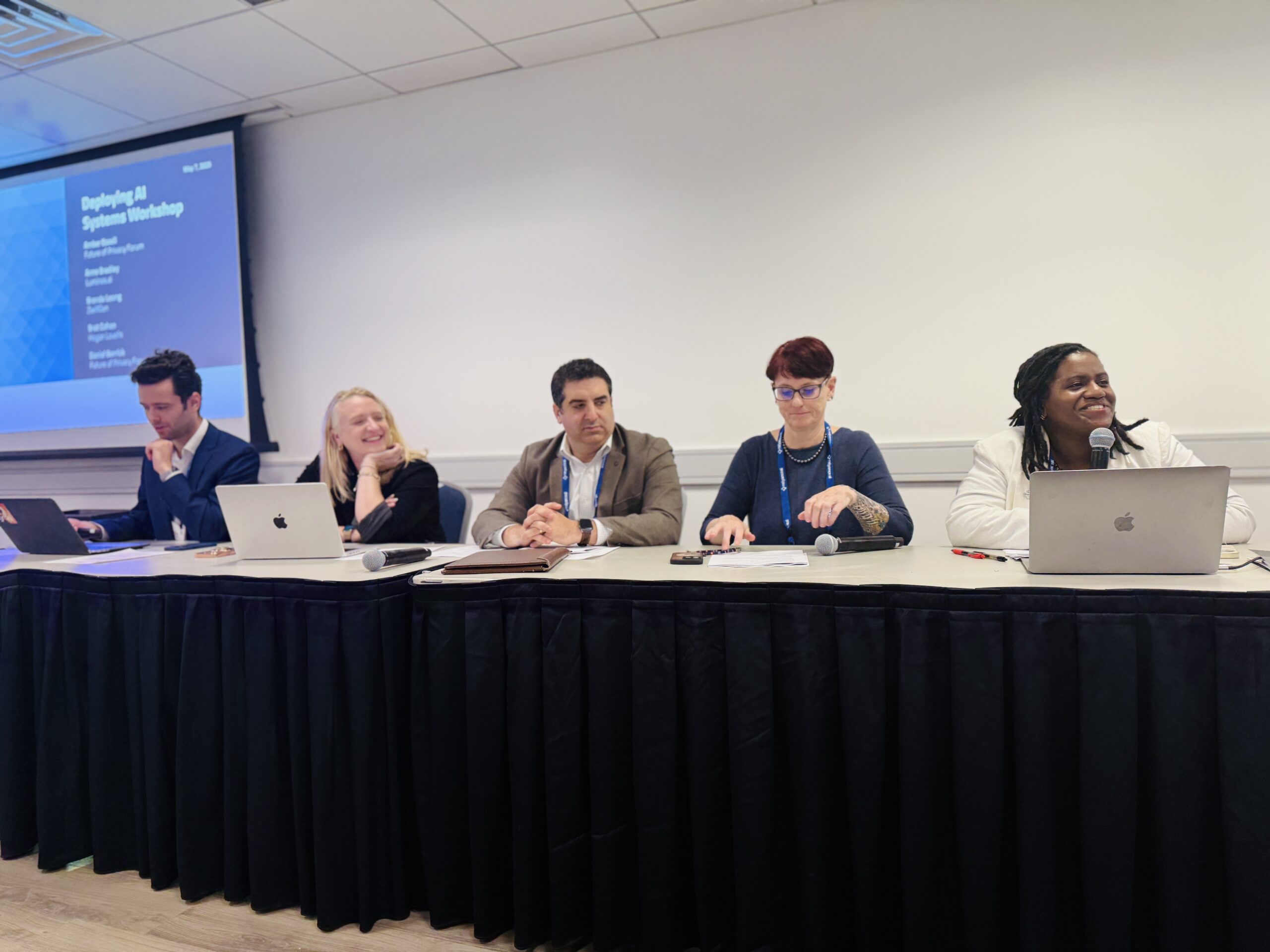Showing results for virg use promo code xcept chile

FPF Experts Take The Stage at the 2025 IAPP Global Privacy Summit
[…] region, noting that most APAC jurisdictions have preferred not to enact hard AI laws. Instead, these regions focus on regulating elements of AI systems such as the use of personal data (Singapore), addressing risk in AI systems (Australia), promoting industry development (South Korea), fostering international cooperation, and responsible AI practices (Japan), government oversight of […]

Lessons Learned from FPF “Deploying AI Systems” Workshop
[…] it is necessary to independently test the tools using their own data, rather than relying on representations made by third party vendors – especially for “high risk” use cases. This is due to the growing amount of regulatory interest in unfair and deceptive practices pertaining to AI deployment (e.g. misleading statements about the capabilities, […]

Amendments to the Montana Consumer Data Privacy Act Bring Big Changes to Big Sky Country
[…] lowest numerical applicability thresholds of any of the state comprehensive privacy laws when the law was enacted in 2023. At that time, prior comprehensive privacy laws in Virginia, Colorado, Utah, Connecticut, Iowa, and Indiana all applied to controllers that either (1) control or process the personal data of at least 100,000 consumers (“the general […]

Consent for Processing Personal Data in the Age of AI: Key Updates Across Asia-Pacific
[…] and related guidelines promote easy-to-understand consent practices and recognize additional legal grounds, especially in the context of AI. A 2025 bill is under consideration to expand the use of non-consent bases for AI-related processing. The Personal Data Protection (Amendment) Act 2024, published in October 2024, introduces stronger enforcement tools and administrative penalties in Malaysia. […]

The Curse of Dimensionality: De-identification Challenges in the Sharing of Highly Dimensional Datasets
[…] to specific individuals. The goal is to enable data analysis, research, and sharing while mitigating privacy harms and complying with legal and ethical obligations. Despite its widespread use and appeal, de-identification is far from a perfected solution. Decades of research and numerous real-world incidents have demonstrated that supposedly “de-identified” or “anonymized” data have been […]

FPF Launches Major Initiative to Study Economic and Policy Implications of AgeTech
[…] partnership with the University of Arizona Eller College of Management. The project, which launched on April 1, will explore the complex intersection of privacy, economics, and the use of emerging technologies designed to support aging populations (“AgeTech”). AgeTech includes a wide range of applications and technologies, from fall detection devices and health monitoring apps […]

FPF and OneTrust publish the Updated Guide on Conformity Assessments under the EU AI Act
[…] New Legislative Framework (NLF) to ensure that high-risk AI systems meet both legal and technical standards before and after being placed on the market and throughout their use. The CA should be understood as a framework of assessments (both technical and non-technical), requirements, and documentation obligations. The provider should assess whether the AI system […]

India
The FPF India Team FPF India is led by Josh Lee Kok Thong. The India Team serves as a trusted, neutral advisor on data protection and tech policy, supporting capacity building, regulatory engagement, and global thought leadership. Its work helps shape a nuanced understanding of India’s evolving privacy landscape while contributing to broader efforts around governance, […]

Africa
[…] Protection in Africa Mercy King’ori On July 28, 2022, the African Union (AU) released its long-awaited African Union Data Policy Framework (DPF), which strives to advance the use of data for development and innovation, while safeguarding the interests of African countries. The DPF’s vision is to unlock the potential of data for the benefit […]

South Korea’s New AI Framework Act: A Balancing Act Between Innovation and Regulation
[…] simplified risk categorization, including absence of prohibited AI practices, comparatively lower financial penalties, and the establishment of initiatives and government bodies aimed at promoting the development and use of AI technologies. The intent of this comparison is to assist practitioners in understanding and analyzing key commonalities and differences between both laws. Finally, Part 6 […]
